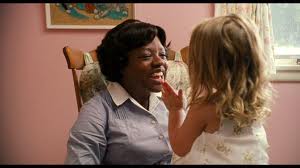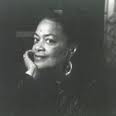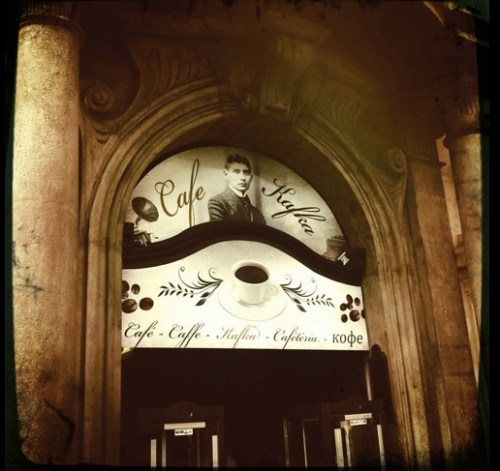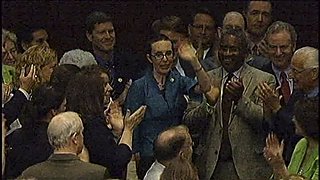A book of many covers:

How's this for nothing at all?



The poster
This mediocre film has been causing discussion far beyond any artistic merit it might have. I’m delighted to see the political pushback against it.
I think the problem with decades derails the intent. The author grew up in the ’70s-’80s, but sets the book in the ’60s.
By ignoring/forgetting what happened throughout the 1960s and telling a tale of subversive behavior leavened with humor and a whole lot of white lady making black folks visible noblesse oblige, she in fact insults the loss of those who died horribly and many more who were traumatized as well as the political triumphs of that decade.As I write this, that displacement seems really bizarre given what has to be buried and ignored in order to tell the story in this way. It erases black agency to use the shorthand jargon.
Change did not begin with a whisper. It began with generations of slavery, lynchings, a Civil War, Jim Crow, a Civil Rights movement, and continues today.
Yes, it is fiction and of course the author can spin things however her muse suggests. A bottom line for me is whose kids were the high school and college students sitting in and going on Freedom Rides? Children of The Help, among others, no?
%%%%%%%%%%%%%%%%%%%%%%%%%%%%%%%%%%%

...and a scene
Monday, 15 August 2011 09:10
Association of Black Women Historians
An Open Statement to the Fans of The Help:
On behalf of the Association of Black Women Historians (ABWH), this statement provides historical context to address widespread stereotyping presented in both the film and novel version of The Help. The book has sold over three million copies, and heavy promotion of the movie will ensure its success at the box office. Despite efforts to market the book and the film as a progressive story of triumph over racial injustice, The Help distorts, ignores, and trivializes the experiences of black domestic workers. We are specifically concerned about the representations of black life and the lack of attention given to sexual harassment and civil rights activism.
During the 1960s, the era covered in The Help, legal segregation and economic inequalities limited black women’s employment opportunities. Up to 90 per cent of working black women in the South labored as domestic servants in white homes. The Help’s representation of these women is a disappointing resurrection of Mammy—a mythical stereotype of black women who were compelled, either by slavery or segregation, to serve white families. Portrayed as asexual, loyal, and contented caretakers of whites, the caricature of Mammy allowed mainstream America to ignore the systemic racism that bound black women to back-breaking, low paying jobs where employers routinely exploited them. The popularity of this most recent iteration is troubling because it reveals a contemporary nostalgia for the days when a black woman could only hope to clean the White House rather than reside in it.
Both versions of The Help also misrepresent African American speech and culture. Set in the South, the appropriate regional accent gives way to a child-like, over-exaggerated “black” dialect. In the film, for example, the primary character, Aibileen, reassures a young white child that, “You is smat, you is kind, you is important.” In the book, black women refer to the Lord as the “Law,” an irreverent depiction of black vernacular. For centuries, black women and men have drawn strength from their community institutions. The black family, in particular provided support and the validation of personhood necessary to stand against adversity. We do not recognize the black community described in The Help where most of the black male characters are depicted as drunkards, abusive, or absent. Such distorted images are misleading and do not represent the historical realities of black masculinity and manhood.
Furthermore, African American domestic workers often suffered sexual harassment as well as physical and verbal abuse in the homes of white employers. For example, a recently discovered letter written by Civil Rights activist Rosa Parks indicates that she, like many black domestic workers, lived under the threat and sometimes reality of sexual assault. The film, on the other hand, makes light of black women’s fears and vulnerabilities turning them into moments of comic relief.
Similarly, the film is woefully silent on the rich and vibrant history of black Civil Rights activists in Mississippi. Granted, the assassination of Medgar Evers, the first Mississippi based field secretary of the NAACP, gets some attention. However, Evers’ assassination sends Jackson’s black community frantically scurrying into the streets in utter chaos and disorganized confusion—a far cry from the courage demonstrated by the black men and women who continued his fight. Portraying the most dangerous racists in 1960s Mississippi as a group of attractive, well dressed, society women, while ignoring the reign of terror perpetuated by the Ku Klux Klan and the White Citizens Council, limits racial injustice to individual acts of meanness.
We respect the stellar performances of the African American actresses in this film. Indeed, this statement is in no way a criticism of their talent. It is, however, an attempt to provide context for this popular rendition of black life in the Jim Crow South. In the end, The Help is not a story about the millions of hardworking and dignified black women who labored in white homes to support their families and communities. Rather, it is the coming-of-age story of a white protagonist, who uses myths about the lives of black women to make sense of her own. The Association of Black Women Historians finds it unacceptable for either this book or this film to strip black women’s lives of historical accuracy for the sake of entertainment.
Ida E. Jones is National Director of ABWH and Assistant Curator at Howard University. Daina Ramey Berry, Tiffany M. Gill, and Kali Nicole Gross are Lifetime Members of ABWH and Associate Professors at the University of Texas at Austin. Janice Sumler-Edmond is a Lifetime Member of ABWH and is a Professor at Huston-Tillotson University.
Suggested Reading:
Fiction:
Like one of the Family: Conversations from A Domestic’s Life, Alice Childress
The Book of the Night Women by Marlon James
Blanche on the Lam by Barbara Neeley
The Street by Ann Petry
A Million Nightingales by Susan Straight
Non-Fiction:
Out of the House of Bondage: The Transformation of the Plantation Household by Thavolia Glymph
To Joy My Freedom: Southern Black Women’s Lives and Labors by Tera Hunter
Labor of Love Labor of Sorrow: Black Women, Work, and the Family, from Slavery to the Present by Jacqueline Jones
Living In, Living Out: African American Domestics and the Great Migration by Elizabeth Clark-Lewis
Coming of Age in Mississippi by Anne Moody
Any questions, comments, or interview requests can be sent to: ABWHTheHelp@gmail.com
[Source: Association of Black Women Historians]
___________________________________
THE HELP IS A TEA PARTY MOVIE

Phillis Wheatley wrote her own damn book, including commentary on her own damn experience — published in 1773! Not only was she The Help, she was The Slave – – up South in Boston.

”You is smart…” ?! Somebody wants me to buy a ticket to get spat on? WTF.
And talk about an array of commodious bosoms. Well, hello Mammy . . it’s so nice to have you back where you belong.
I dare you to bleeping cry at this insult to the death, home-grown terror, and indeed triumph, of the Civil Rights era of the 1960s.
End of rant. And yes, some stunning performances. Wonder what the next scripts offered those black artists will be.
This blurb, from Stockett’s website is beyond offensive. Please read it thoughtfully:
Three ordinary women are about to take one extraordinary step. Twenty-two-year-old Skeeter has just returned home after graduating from Ole Miss. She may have a degree, but it is 1962, Mississippi, and her mother will not be happy till Skeeter has a ring on her finger. Skeeter would normally find solace with her beloved maid Constantine, the woman who raised her, but Constantine has disappeared and no one will tell Skeeter where she has gone.
Aibileen is a black maid, a wise, regal woman raising her seventeenth white child. Something has shifted inside her after the loss of her own son, who died while his bosses looked the other way. She is devoted to the little girl she looks after, though she knows both their hearts may be broken.
Minny, Aibileen’s best friend, is short, fat, and perhaps the sassiest woman in Mississippi. She can cook like nobody’s business, but she can’t mind her tongue, so she’s lost yet another job. Minny finally finds a position working for someone too new to town to know her reputation. But her new boss has secrets of her own.
Seemingly as different from one another as can be, these women will nonetheless come together for a clandestine project that will put them all at risk. And why? Because they are suffocating within the lines that define their town and their times. And sometimes lines are made to be crossed.
In pitch-perfect voices, Kathryn Stockett creates three extraordinary women whose determination to start a movement of their own forever changes a town, and the way women–mothers, daughters, caregivers, friends–view one another. A deeply moving novel filled with poignancy, humor, and hope, The Help is a timeless and universal story about the lines we abide by, and the ones we don’t.














